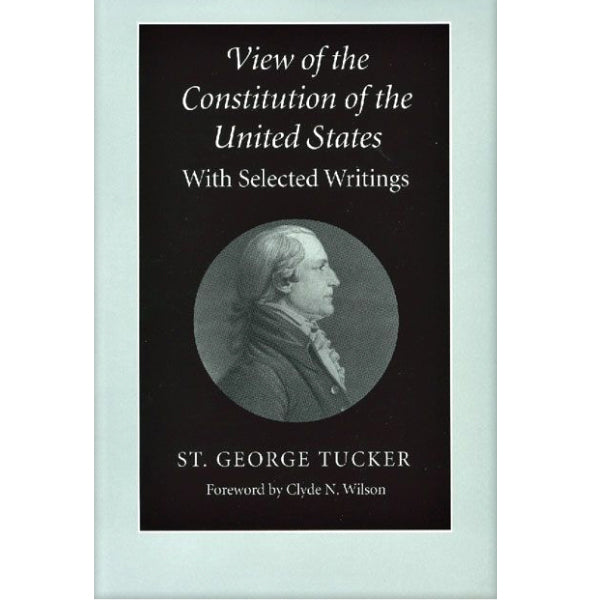View of the United States Constitution by George Tucker
View of the United States Constitution by George Tucker
Couldn't load pickup availability
The Constitution was young, the ink on the Bill of Rights barely dry, when St. George Tucker set out to explain what it all meant. His View of the Constitution of the United States — published in 1803 — was the first extended, systematic commentary on the charter ratified by the people of the several states. For decades it served as a guidebook for American lawyers, judges, and statesmen, embedding Jeffersonian republicanism into legal culture. That View, along with Tucker’s most significant essays, is brought together here in a Liberty Fund edition that restores his voice to the constitutional conversation.
What makes Tucker stand apart is not abstraction, but grounding. He taught law at William and Mary using Blackstone’s Commentaries — but refused to leave Blackstone’s monarchical assumptions intact. Instead, he republicanized them. In essays on sovereignty, common law, free speech, conscience, crime, and slavery, Tucker consistently argued that governments are agents of the people, limited to delegated powers, and subject always to reassertion of popular sovereignty.
Tucker was no detached theorist. He fought in the Revolution, corresponded with Madison, and taught in the same classrooms once occupied by Jefferson. His commentary reflects not merely philosophy but lived conflict: the struggle between Hamiltonian expansion and Jeffersonian restraint, between centralizers invoking national power and republicans insisting on state sovereignty. Later generations buried Tucker’s perspective under Story, Webster, and Lincoln — but this was the constitutionalism Americans once lived by.
For students of constitutional law, political philosophy, and early American history, Tucker offers more than antiquarian interest. He reminds us that the Constitution was ratified with limits in mind, that the Bill of Rights was designed as a check on delegation, and that federal authority was never meant to judge the scope of its own power. Liberty Fund’s edition makes these writings accessible again — essential for anyone who would understand the Constitution not as later reinterpreted, but as first ratified. (1999ed, 504pp)

